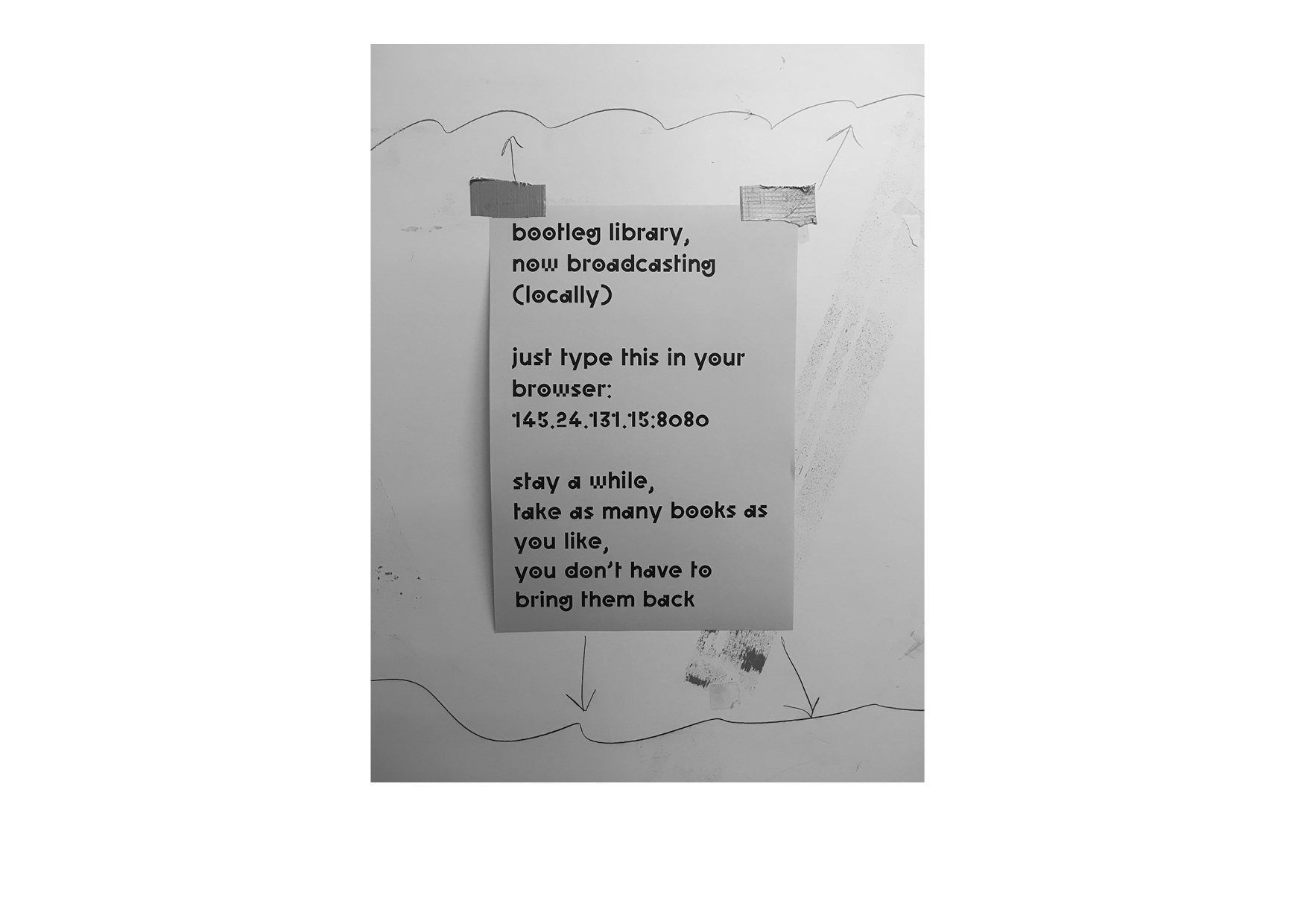keeping private

see also trusting, networking
All that I did was click a button and switch on the content server. The library was automatically assigned a dynamic IP address, followed by a colon and a port: 8080. Type http://145.131.24.139:8080 into a browser, and you’d arrive at the library, no problem. But you had to already be on the local network; you couldn’t access it from the outside. And the IP address could change without warning, as dynamic IPs often do.
A sequence of digits is not nearly as memorable as a domain name. And paradoxically, we expect stability from a digital environment that is quite dynamic and in flux. Trust erodes at every extra click, every retyped URL. Accessibility is tantamount to existence. If you can’t access it, it doesn’t exist.
8080 is for personally-run web servers. It’s called 8080 because it relates to port 80, the port that HTTP is served over. But ISPs regularly scan for HTTP requests including port 8080, to see if there is any illegal traffic occurring over the network, so it’s best to set it to a custom number (there are 65,535 potential ports to use).
The library is now accessible from the outside over a VPN, and the page is HTTP password-protected. On arrival at the URL, enter the following username and password.
Image: Poster announcing the bootleg library, Piet Zwart Institute, July 2019
